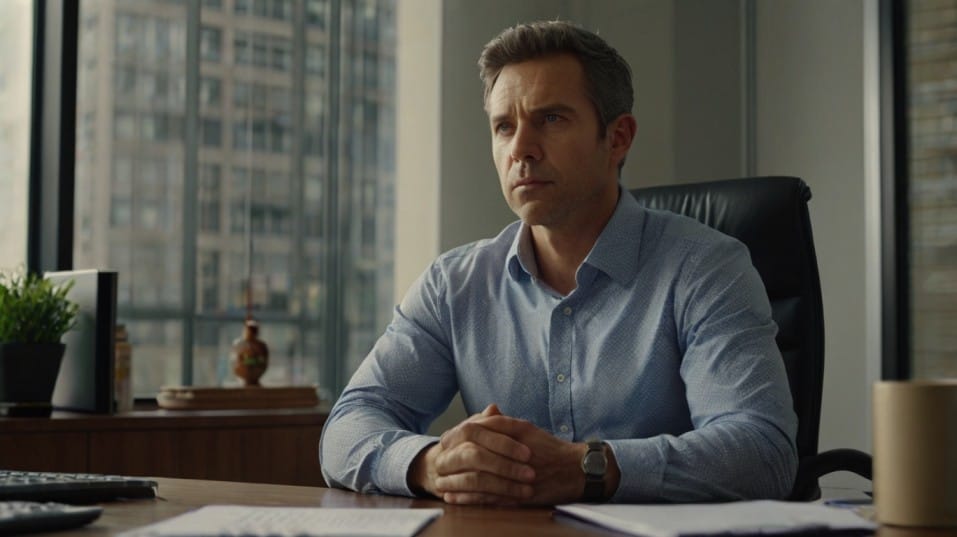How Mindfulness Helps You Bounce Back from Workday Setbacks
Work setbacks don’t have to ruin your day. Learn how mindfulness rewires your brain to handle stress, reset, and move forward with clarity.

Does one bad moment at work ruin the rest of your day? A tense meeting, a tough email, or a simple mistake can linger, making it hard to focus.
But what if you could reset faster? Mindfulness shifts how your brain processes stress, helping you recover without getting stuck in frustration.
When setbacks hit, the way you respond makes all the difference. Instead of letting them derail your day, you can train your mind to bounce back with clarity and control.
Why Workday Setbacks Hit So Hard
Your brain is built for survival, not corporate life. A tough moment at work—like criticism or failure—triggers your stress response, flooding your body with cortisol.
Muscles tense, thinking narrows, and emotions take over. Left unchecked, this reaction lingers, draining energy and disrupting focus.
Mindfulness disrupts that cycle. By noticing your reactions without judgment, you create the space to respond differently. Instead of being consumed by frustration or doubt, you regain control over your next move.
Moving Through Setbacks with Mindfulness
Setbacks happen, but how you respond determines their impact. Instead of letting frustration take over, you can train yourself to pause, observe, and reset.
Mindfulness offers practical tools to break the stress cycle before it spirals out of control.

Catch the Reaction Before It Catches You
A sharp email lands, and your pulse spikes. A mistake surfaces, and your mind starts racing. These are cues to pause.
The faster you recognize your body’s response, the less it controls you. Pay attention to physical cues—tight shoulders, clenched jaw, shallow breathing.
They’re early warning signs that stress is taking hold. Awareness is the first step to regaining control.
Breathe to Break the Stress Loop
A deep inhale isn’t just a cliché—it shifts your nervous system out of fight-or-flight mode. Try this: breathe in through your nose, hold for a moment, and exhale slowly through your mouth.
This simple act signals your brain to calm down, clearing space for a rational response.
Research shows that slow, intentional breathing activates the parasympathetic nervous system, lowering heart rate and reducing cortisol levels. If you can control your breath, you can control your response.
Label the Emotion, Reduce Its Power
Instead of drowning in frustration, name it. “This is stress.” “This is disappointment.” Studies show that identifying emotions softens their intensity, giving you psychological distance from the setback.
Neuroscientists call this "affect labeling"—putting words to emotions activates the prefrontal cortex, which helps regulate feelings rather than being overwhelmed by them. When you name it, you tame it.
Reframe the Situation
Instead of “I failed,” try “That didn’t go as planned—what can I learn?” Mindfulness helps you shift from self-criticism to problem-solving, keeping you open to solutions instead of spiraling into negativity.
Consider asking yourself: Is this setback as bad as it feels? What would I tell a colleague in the same situation? These questions introduce objectivity, breaking the emotional hold setbacks often have.
Respond with Intention, Not Instinct
A rough moment can tempt you to react impulsively—fire off a defensive email, shut down, or ruminate. Mindfulness helps you pause, check in, and choose your next move wisely. A clear-headed response beats a knee-jerk reaction every time.
Before acting, ask yourself: Will this response serve me long-term? If the answer is no, reconsider your approach. The ability to pause and respond rather than react is a hallmark of emotional intelligence.
Long-Term Impact of Mindfulness on Resilience
Practicing mindfulness consistently makes setbacks feel less disruptive. It rewires how your brain processes stress, reducing emotional overreactions and sharpening problem-solving.
Over time, you’ll bounce back faster, adapt more easily, and stay focused on what truly matters.
Mindfulness also prevents burnout. By addressing stress in real time instead of accumulating tension throughout the day, you protect your mental energy. Instead of carrying frustration from one meeting to the next, you reset and stay present.
A Harvard study found that people who are mentally present in the moment—rather than dwelling on the past or worrying about the future—are significantly happier.
Being mindful isn’t just about handling setbacks; it’s about cultivating a sense of well-being even in high-pressure environments.
Practical Ways to Integrate Mindfulness at Work
Mindfulness isn’t just about meditation—it’s about small, intentional shifts in how you navigate your workday. Here are a few ways to incorporate it into your routine:
Mindful Transitions
Before moving from one task to another, take a moment to reset. One deep breath can create a mental buffer between a stressful meeting and your next task.
Micro-Meditations
Even a 60-second pause to focus on your breath can help recalibrate your nervous system. Try it between emails or before a difficult conversation.
Intentional Listening
Next time you’re in a meeting, practice mindful listening. Instead of mentally preparing your response while someone is speaking, fully absorb their words. This reduces reactive communication and improves relationships.
Mindful Walking
Step away from your desk for even a few minutes. Pay attention to each step, the sensation of movement, and your surroundings. This helps break the cycle of overthinking and stress accumulation.
Reflect, Don’t Ruminate
At the end of the day, take two minutes to reflect. What went well? What could be improved? Then let it go. Rumination keeps you stuck; reflection helps you grow.
Final Thoughts
Work setbacks are inevitable. Staying stuck in them isn’t. Mindfulness trains you to reset, reframe, and move forward with clarity.
The more you practice, the easier resilience becomes. Next time frustration hits, take a breath, notice your reaction, and choose a better response.
Over time, setbacks lose their grip, and you gain the power to handle them with confidence. Start now—your future self will thank you.




